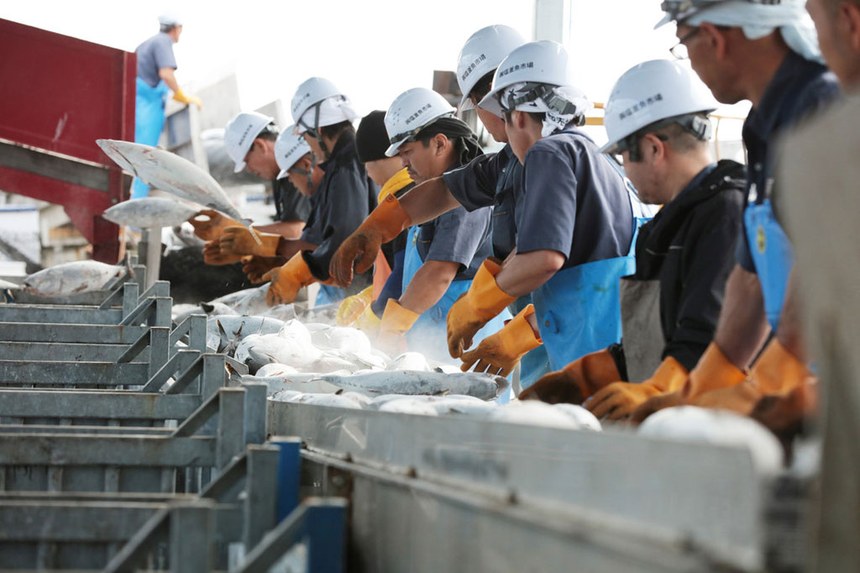- Certifier :
- LRQA (Seafood) Limited
- Certified status :
- Certified
- Certified since :
- 17 Oct 2016
- Certificate expires :
- 15 Apr 2027
Overview
Fisheries are composed of one or more parts, each of which is entitled to receive an MSC certificate. These parts or “units” are defined by their target stock(s), fishing gear type(s) and if relevant vessel type(s), and the fishing fleets or groups of vessels.
When the term “Unit of Certification” is used for fishing units that are in assessment, it refers to the “Unit of Assessment” or “Unit of potential certification”. Expand a status below to view the parts that form this fishery. To check the detailed scope, download the latest certificate or open the Assessments page to get the latest report. Find out more by visiting our page on Fisheries
Catch by Species
| Species | Reported Catch Year | Metric Tonnes |
|---|---|---|
| Albacore tuna (Thunnus alalunga) | 2024 | 736 |
| Skipjack tuna (Katsuwonus pelamis) | 2023 | 4,354 |
Information is provided by an independent Conformity Assessment Body as live weight (the weight of species at the time of catch, before processing) and where a fishing season covers multiple years, the end year is given as the reported catch year. Additional information is available in the latest report, see the assessments page.
About this Fishery
This fishery, also known as the Meiho Fishery, operates from Miyagi prefecture in Northeastern Honshu.
It was certified in 2016, five years after the devastating 2011 Tōhoku Earthquake and tsunami hit the region. Catch is processed in the port city of Shiogama. Meiho was the third Japanese fishery to be MSC certified.
Skipjack are a highly productive species exhibiting great variability in life history characteristics. They are surface-schooling and smaller than other tuna – capture size is typically 40 to 70cm, corresponding to fish from one to three years old. Few live longer than four years.
Albacore mature at an age of four to six, living up to 12 years, and are usually caught at 45-50cm. Like skipjack they are pelagic predators, with albacore sometimes diving to depths of 400m in search of food.
Both species are harvested by the centuries-old pole and line technique: tuna are attracted to the vessels by live bait (usually small schooling reef fish) thrown into the water and then caught with barbless hooks on fibreglass poles. The tuna are then swung on board where they fall onto the deck, and are immediately put into holds with ice. This means bycatch is eliminated.
"My experience of the earthquake made me realise that delivering sustainable seafood to the market is inevitable for the future and this belief inspired me to start this sustainable fishery. I therefore am very delighted that our fishery is certified. Recently this fishery's parent company Meiho Co. Ltd., a processor, gained MSC Chain of Custody certification for all seafood from this fishery, and my next agenda is to promote our sustainable skipjack and albacore tuna in the market." – Kenji Matsunaga, Meiho CEO, 2016
Read the story of the Meiho tuna fishery >
Image of Meiho processors sorting tuna © MSC/Nobuyuki Aoki
Market Information
The catch is marketed domestically in Japan. In 2014, the client group’s catch totalled about 3,000 tonnes (2,050 tonnes skipjack, 942 tonnes albacore).
